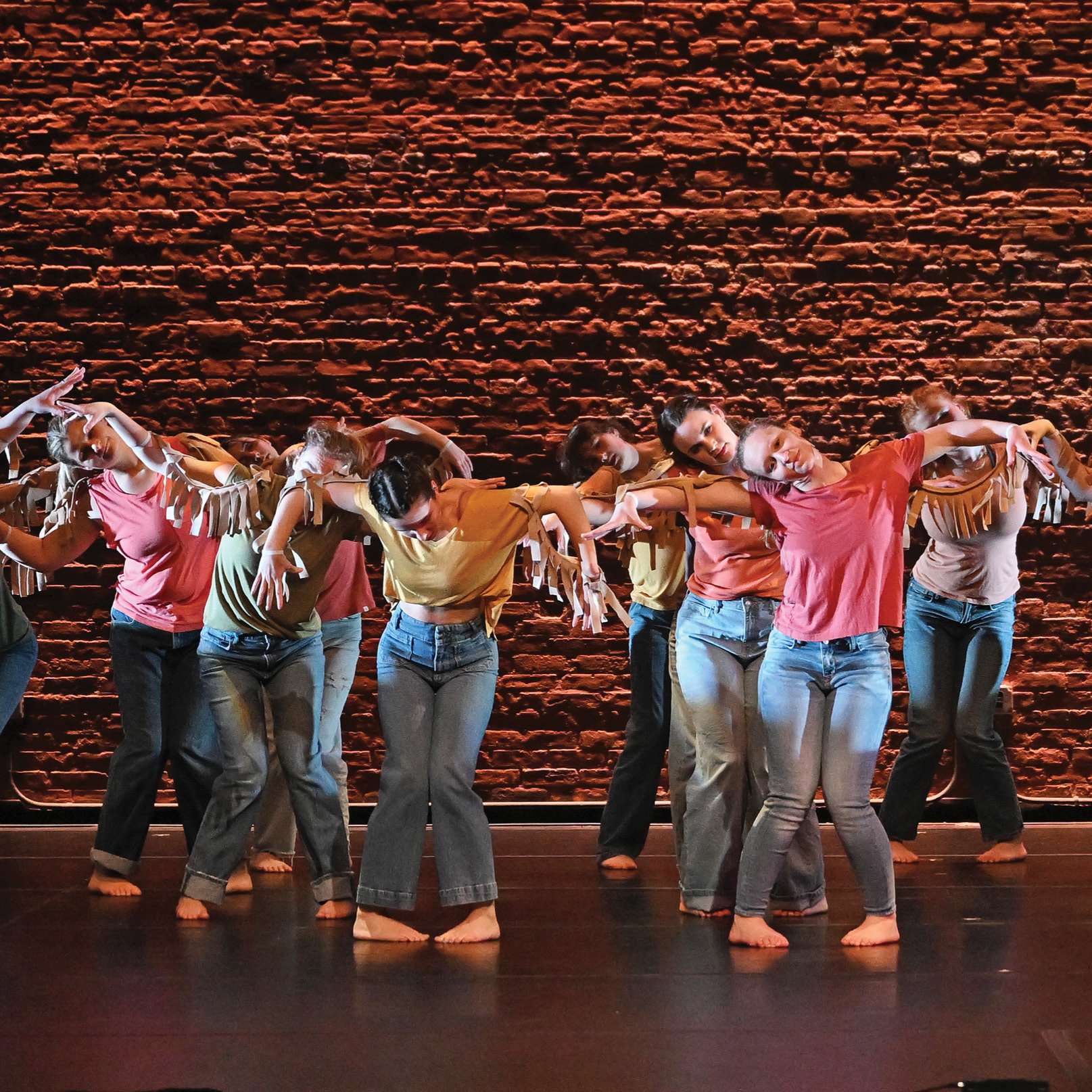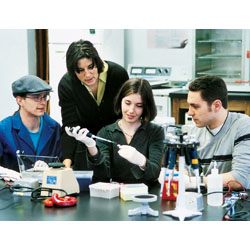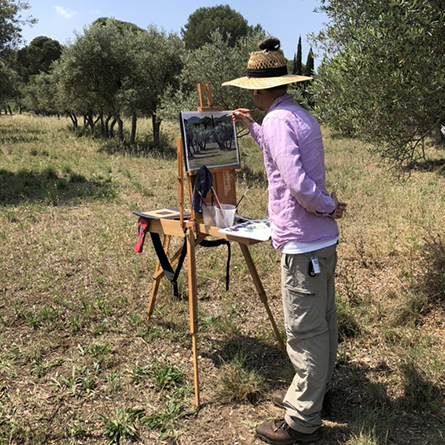
Professor awarded $412K for cancer research from National Institutes of Health

Biology professor Martha Grossel has been awarded a grant of $412,470 from the National Institutes of Health’s (NIH) National Cancer Institute to continue cutting-edge cancer research.
Grossel’s research focuses on the unregulated cellular division that is associated with cancer. Grossel and her team — including Connecticut College students and collaborators Philip Hinds, professor and chair of the Department of Developmental, Molecular and Chemical Biology at Tufts University School of Medicine; Heide Ford, professor of pharmacology at the University of Colorado School of Medicine; and Dawn Kohrt, research associate at Connecticut College — are particularly focused on the interaction of the cell cycle regulatory protein “Cyclin Dependent Kinase 6” (cdk6) and the developmentally important transcription factor “Eyes absent homolog 2” (Eya2).
The research is a continuation of work funded by two previous grants, including a $419,375 NIH grant awarded to Grossel in 2011.
Grossel has found that cdk6 — a protein that causes cells to divide normally — interacts with Eya2 and causes its degradation. The interaction of the two proteins has potential implications for ovarian and breast cancer treatment.
“By gaining a better understanding of cell development and cell division, we are finding practical applications that may lead to major breakthroughs down the road,” said Grossel.
The grant will allow undergraduate students from Connecticut College to conduct side-by-side research with Grossel. To date, 21 students have participated in Grossel’s cancer research. Of those students, 33 percent have completed or are enrolled in doctorate programs; another 33 percent have earned medical, veterinary, dental or nurse practitioner degrees; and 25 percent are pursuing careers in science or teaching.
Two current students working in Grossel’s laboratory traveled with her to present their research at the American Society for Cell Biology conference in Philadelphia in Dec. 2014.
“My biggest contribution to science will likely not be my research, but the scientists I help develop and put into the field. They will be the ones making the biggest difference,” Grossel said.
Anthony Guerrero ’16, one of the two students who went with Grossel to Philadelphia, began working with her in the summer of 2014. Performing high-level research at such an early stage in his academic career, he says, has made him stand out among students his age from other colleges and universities.
“Not many undergraduate students get the chance to conduct hands-on research in a laboratory,” Guerrero said, who continued his research during the fall semester. “Dr. Grossel has been a very supportive and impactful mentor to me and I’m truly grateful to help her with her research.”
January 15, 2015
